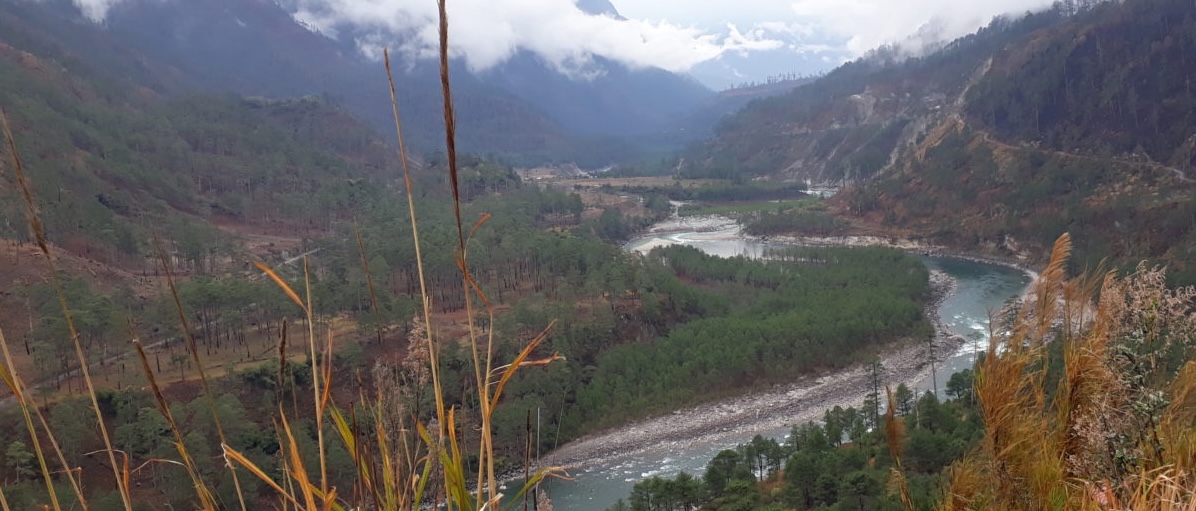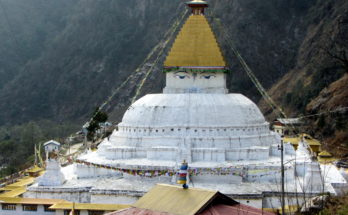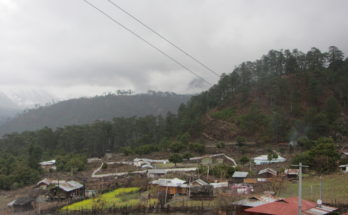Nagpur: Incredible! That is how Rubina Patel’s life story is.
She came from a well to do, educated, business family, married to a teacher, blessed with two children. She wanted to study and help the community through her social work. But her life went on an unexpected trajectory.
If fighting against an abusive father was not enough, she faced a violent husband, who pushed her into a well. As if her lonely struggle against corrupt system – vis-à-vis police and court staff that prevented and delayed justice to her – was not enough, she has even faced death threats.
Rubina Patel of Nagpur
But, rising above her odds, fighting and hoping against hope, Rubina survived all this and much more. And today, the 39-year-old resident of Tajbagh area, near the Tajuddin Baba Dargah, has become an inspiration for all. She counsels divorced Muslim women and helps out needy young girls and even elder women by training them to earn a living.
She was awarded the Baburao Samant Sangharsh Puraskar 2014 on October 18th.
Early life, marriage and near death experience
Rubina’s father was an educated businessman from Umred, about 50 kms from Nagpur. She dreamt of higher studies and wanted to do social work. But her drunkard father won’t let her study. He would harass her and her mother, not let her eat and even beat her. “Paida karna jurm kyun nahee hai? (Why is giving a birth not considered a crime),” she says in chaste Urdu, one of the four languages – Marathi, Hindi and English being other three – that she is fluent in and alternates with ease.

A devout to the core, prayers and reciting namaz were a constant then in her life. She was barely 18 – studying in class 12th – when she was married off to a teacher, then posted at Pahla village in Bhandara district, as she thought “marriage would change things” for her. Five years and two children later – the son is now 21 years and daughter 18 – she was in for a rude shock.
Rubina’s husband started ill-treating her. She faced domestic violence and was tortured physically, mentally and sexually. During this time, her will to study prompted her to take up Bachelor in Arts (BA) course but that too was met with hurdles. Her husband would tear up books, ask ‘how she filled up the form without asking?’ and one year, did not even let her go for examination.
One day, her husband brought a ‘talaq ka fatwa’ from a local Mufti. After her father died, her uncle had usurped their property so Rubina’s mother had gone to stay with her own brother. Rubina and her daughter were with Rubina’s mother when the news of talaq reached her. Her husband won’t meet her or allow her to meet their son. With a strong urge to meet her son, she went to the village Kondha Kosra, where husband was then posted.
“July 7, 2007. I can never forget that fateful evening!” Rubina recalls, her eyes looking distant. Her husband not just verbally abused and physically tormented her; he actually pushed and dumped her into a well in their courtyard.
A dangling pipe of a submersible pump inside the well saved her but her left leg was fractured. She remained there in darkness for more than an hour. Her husband had threatened all onlooking neighbours. Almost 1 ½ hours later, several women goaded their husbands to pull her out. “Hanging for my life, I still was thinking about meeting my son. Unfortunately that time, he never listened to me and never met me,” she says her tone palpably sad and angry at once.

Lonely struggle and the zeal for life
With a fractured left leg, she lay on her bed for almost six months, with bouts of crying interspersed with long depressing silence. On one hand she could not believe what had happened with her. On the other, tears won’t stop thinking what next? Her worries were only augmented when her husband lodged a case against her under section 309 (Attempt to commit suicide).
That started another round of trying period for her. Travelling to the court alone, studying and preparing her matter and arguing the case herself. “Even the judge was impressed by my work,” she recalls with a fleeting smile, and, adds quickly, “But no use. Police connived with my husband.”
Every time she would ask the policeman “Did you ask my husband if he has shown me thetalaq ka kaghaz?”, “Did you ask him if he has paid Mehar amount to me?” or “Have you asked if he has returned my stree dhan?” the policemen and even the court staff would find newer excuses of not doing so. (Stree dhan – jewellery / money that a woman in Maharashtra gets at the time of her marriage).
Slowly, slowly her thinking started changing. Her prayers were not answered, her life didn’t show any promise.
“I knew just one thing. I wanted to live for my daughter.” By this time, she had called her mother back from her Mamaji’s place and the trio lived together at Nagpur. It took her 10 years to complete her BA course. Then she did a B Ed course and started working in a school. Masters in Social Work (MSW) and Masters in Arts (MA) followed.
But bouts of depressions continued to haunt her. “I was going to dargah, was offering namaz and prayed regularly. But nothing was happening. One day, as if hit by a bolt, I said, “Enough!” and I felt as if I was free from the bondage of religion. Then I thought to myself, I am independent now, I can do what I want. I can pursue all my dreams now.”
Meanwhile, she was cleared in the ‘attempt to suicide’ case but her counter case challenging her talaq remains incomplete.

Rubi Social Welfare Society
In 2005, during her MSW course itself, she had started counseling poor needy women from her locality and started Rubi Social Welfare Society from a one-room rented house. As her work expanded, she interacted with several other activists and organizations she started attending workshops on gender and women’s empowerment. In 2008, she came in contact with famous Mumbai based women’s rights activist Hasina Khan and her Aawaz-e-Niswaan (Voice of the Women). It inspired her to do more, expand the scope of her work.
The society has a counseling centre at Kuhi, another village in Nagpur district. Along with women’s rights work there, she also mobilized the women of that village, with about 50,000 population, to organize a daaru bandi protest (no liquor campaing) but did not succeed.
In 2011, Rubina opened the training centre – Rubi Training Institute – with an aim to offer livelihood related course to make women financially independent. “Women from my society, especially poor and illiterate, suffer a lot. And if they are talaq pidit(divorce sufferers), they face more problems. And what are the reasons for divorce? Small little things! Then, there are those taboos – don’t do this, do go there, don’t talk with that man, don’t venture out without a burqa. Burqa sirf kapde ka nahee hota hai, dharm ka bhee hota hai,” the young activist asserts.
Today the training centre – recognized by the government for vocational courses – offers Beauty Culture, Montessori and Computer, for a nominal fee of R500 or R1000. Montessori training is a 9-months course with 10-12 ladies per batch; Beauty Culture training course runs for 6 months with 15 ladies per batch while the fashion designing is a full year course with 15 women and young girls.
The five-room building, an erstwhile school, belongs to the Hazrat Baba Tajuddin Trust and offered to her on a nominal rent. The institute has 3 teachers, one legal advisor, a project coordinator, two community workers and three other persons at the Kuhi centre. Rubi has handled 800-850 cases of counseling. Recently they also started anti-trafficking work at Bhandara district.

Rubina also reaches out to women from villages, slums and economically backward colonies. Women associated with her often stage demonstrations for their issues. In recognition for her work, she has won the Keshav Gore Smarak Trust Puraskar, Hamid Dalwai Puraskar and Ram Aapte Prabodhan Puraskar since then apart from the latest award in October.
As her work increased, there were people, especially men and religious clerics, who didn’t like what she was doing. In 2011, a mother came pleading to save her underage daughter from getting married. Her husband had thrown her out. “I rang up the area DCP and got the local ACP and the police inspector to stop that marriage. Next thing I know is an irate morcha coming for my life. Police also later came to know about a conspiracy to kill me,” a confident Rubina rattles off similar incidents and puts forth an important point.
A man treats his wife in a different manner but when it comes to his own sister or daughter, he takes a different stand. Rubina hopes: “That’s where my work is.”
(This was first published by TwoCircles.net on November 9, 2014 and can be read at http://twocircles.net/2014nov09/1415509586.html#.VGj12TSUe84)




